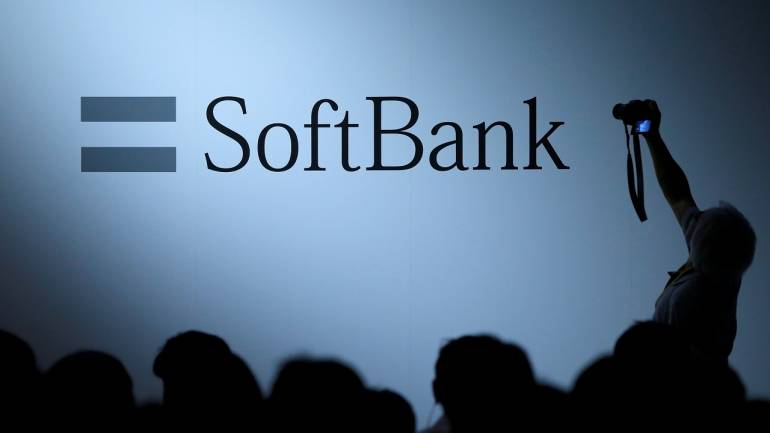Highlights:
1. Typically, SoftBank leads the capital infusion and commands a large stake when it invests in a firm
2. The fear probably stems from the fact that in 2017, SoftBank was actively mediating merger talks between its two investee firms and rivals — Flipkart and Snapdeal
-------------------------------------------------
Last year, when Policybazaar decided to raise additional capital, the Gurugram-based insurance aggregator had not one but five term sheets from investors.
At least one of them was ready to write a cheque that would catapult the company to a valuation of $1.5 billion. But Policybazaar co-founder and CEO Yashish Dahiya had set his heart (and mind) on just one investor, SoftBank, although the valuation offered by the world’s largest technology investor was much lower.
“We did not want SoftBank on the side of a competitor. We were very clear that we wanted to have SoftBank as our investor. We were not interested in anyone else. SoftBank has the widest exposure across fintech in the world," says Dahiya.
In June, Policybazaar, along with Paisabazaar, raised $238 million from SoftBank in its Series F round, marking the company’s entry into the elite unicorn club, or those tech-enabled startups that are valued over $1 billion.
Dahiya in some ways underscores the sentiment that Indian entrepreneurs have today. With its large cheques, which have touched as much as $2.5 billion in a single round in India in the case of Flipkart, SoftBank has created what the startup industry terms a club of ‘super-haves’, who are far ahead of their competitors in dollar-on-dollar (or in terms of the capital in hand) terms, making competitors look a bit disadvantaged.
“SoftBank has created what can be called as a mega fund phenomenon," said Rehan Yar Khan, Managing Partner at Orios Venture Partners, an early-stage investment firm. “The good thing about it is that it has brought a lot of capital to startups and done a good job of backing new economy firms. (But) for companies that do not get funded by it, there is no other mega fund to go to."
But the mega fund gives its portfolio firms ample support. Take the example of Oyo Hotels and Homes, which turned into a full stack asset management from a budget hotel aggregator and is now going global in a big way.
It is now South Asia’s largest, China’s second-largest, and the world’s sixth-largest and fastest-growing chain of leased and franchised hotels, homes and living spaces. While it competes with the likes of Treebo Hotels in the budget hotel segment and CoHo in the co-living space, there is no second asset manager challenging it on all fronts of the business.
“The clear advantage (of being backed by SoftBank) is that the company ends up feeling a very high degree of confidence, both in terms of financial security and sustainability. With SoftBank, they have someone deep pocketed on their side, who could go the long haul," said Mayank Singhal, Managing Partner at Millennial Capital, an investment firm. “The company often sees the kind of runway it has never seen before, making it very secure about the availability of resources and capital, which is fundamental to growth, experimentation and business expansion."
That said, while SoftBank’s capital brings strong advantages to a startup, it often comes with its own set of conditions.
Typically, SoftBank ends up leading the largest ever capital infusion when it invests in a company and often commands a substantial stake and decision-making power. Some promoters, however, do not like giving too much power into the hands of one investor. For example Ola, where SoftBank is an investor, is said to be widening its investor base in a bid to maintain its independence, according to several media reports. SoftBank is also an investor in Uber Technologies, an arch-rival of Ola in India.
The fear probably stems from the fact that in 2017, SoftBank was actively mediating merger talks between its two investee firms and rivals—Flipkart and Snapdeal. The deal fell through.
“I think SoftBank has a deep desire to be associated with an industry/segment leader, which is why in some situations, it will try to drive consolidation. In some cases, it will go out and back a competitor, when the company it has backed has not been able to emerge as a leader," said a Mumbai-based investor, who requested anonymity.
In the meantime, its portfolio firms continue to reap benefits of their association.
Policybazaar entered the outpatient department insurance and online consultation space with DocPrime after SoftBank came on board.
Oyo decided to explore the Chinese market after a casual conversation with SoftBank Group Chief Executive Officer Masayoshi Son on the “exceptional quality of talent in China".
“We have also received valuable insights on Japan that have helped us scale and grow our Hotels and Oyo Life business there," said Ritesh Agarwal, founder and Group CEO of Oyo.
Industry insiders say the investment pace of SoftBank may change a bit as it is now focusing on raising its second $100 billion technology investment fund, though it still has substantial dry powder left to deploy. It is now eyeing smaller transactions in the range of $100-200 million as part of a revamp of its India strategy, Mint reported earlier this month.
Startups that do not have any other options will simply have to wait and watch the next moves of SoftBank.Subscribe to Moneycontrol Pro and gain access to curated markets data, exclusive trading recommendations, independent equity analysis, actionable investment ideas, nuanced takes on macro, corporate and policy actions, practical insights from market gurus and much more.
















